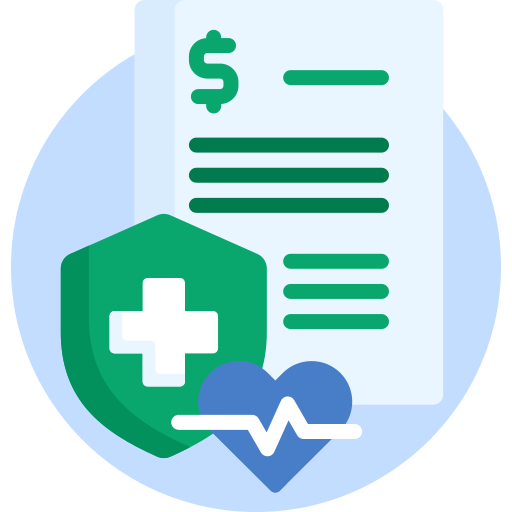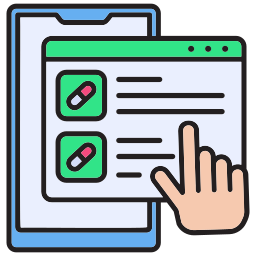Data is important in healthcare, serving as the foundation for clinical decision-making, patient care, and operational efficiency. Accurate and accessible health data allows providers to diagnose conditions correctly, develop effective treatment plans, and track patient outcomes over time. This information supports research and innovation, leading to improved medical practices and the development of new therapies. Data-driven healthcare ensures that patients receive personalized and effective care.
In terms of revenue, the worldwide healthcare interoperability solutions market is expected to be valued at $3.4 billion in 2022 and increase at a CAGR of 12.9% between 2022 and 2027.
Interoperability refers to the ability of different healthcare systems and applications to communicate, exchange, and use data effectively. This concept is important in today's fragmented healthcare environment, where patients receive care from multiple providers and systems.
By guaranteeing seamless patient data transfer between various systems, interoperability gives medical staff members access to complete and current patient records. In addition to improving medical care, it also reduces errors and inefficiencies brought on by disjointed data.
What is Interoperability?
Interoperability in healthcare refers to the ability of different health information systems and software applications to communicate, exchange, and use data effectively. This means that various platforms, from EHRs to specialized medical software, can share and interpret patient information accurately and efficiently, ensuring that critical data is accessible wherever and whenever needed.
The significance of interoperable systems in the modern healthcare landscape cannot be overstated. They allow for the smooth flow of information across different healthcare providers and settings, which is crucial for coordinated and efficient patient care. By ensuring that all relevant data is available to healthcare professionals, interoperable systems help reduce errors, improve patient outcomes, and support informed decision-making in real-time.
Benefits of Interoperable Healthcare Data for Providers
Interoperable healthcare data greatly improves the efficiency and quality of patient care by enabling smooth data exchange across different healthcare systems. This integration allows for accurate and up-to-date patient information to be readily available, which supports better clinical decisions and more effective care plans.
Healthcare providers can streamline their workflows, reducing the time spent on manual data entry and paperwork. It increases efficiency, improves patient outcomes, and requires a more coordinated approach to care delivery. Interoperable data systems contribute to a more organized and responsive healthcare environment, significantly benefiting providers and patients.

Improved Patient Care
Seamless data exchange impacts patient outcomes by ensuring that healthcare providers have immediate access to a complete and accurate view of a patient’s health. This level of accessibility facilitates more precise diagnoses and timely interventions. With detailed and up-to-date information, healthcare professionals can develop personalized treatment plans that cater to each patient’s unique needs. As a result, the quality of care improves significantly, leading to better overall health outcomes and a more positive patient healthcare experience.
Enhanced Efficiency
Interoperable systems reduce the administrative burden on healthcare staff by streamlining workflows and decreasing the reliance on manual data entry and paperwork. With systems that communicate effectively with each other, healthcare providers can spend less time on administrative tasks and more time focusing on patient care. Its improvement in operational efficiency boosts the productivity of healthcare facilities and contributes to a more effective and smooth-running healthcare system.
Accurate and Comprehensive Records
Interoperability ensures that healthcare providers can access detailed and accurate patient records, which is critical for making informed clinical decisions. When patient histories are complete and easily accessible, doctors can track health trends over time and make well-informed decisions regarding treatments and interventions. Access to thorough records supports better diagnosis and care, contributing to improved patient health management and more effective treatment strategies.
Reduced Medical Errors
When healthcare systems are interoperable, it reduces the risk of medical errors by ensuring all relevant patient information is consistently available and up-to-date. Providers can access accurate details about a patient’s medications, allergies, and medical history, which helps avoid mistakes related to incomplete or incorrect information. Reducing errors enhances patient safety and contributes to more reliable and effective healthcare delivery.
Cost Savings
Adopting interoperable systems leads to significant cost savings by optimizing the use of resources and reducing the need for duplicated tests and procedures. When data is shared across systems, healthcare providers can avoid unnecessary repeat tests and streamline their care processes. The efficient use of resources lowers operational costs and improves the financial efficiency of healthcare organizations.
Better Collaboration
Interoperable data systems facilitate better communication and coordination among healthcare teams. When all care providers access the same patient information, they can work together more effectively to provide coordinated care. The improved collaboration leads to more cohesive patient management, reducing the likelihood of miscommunication and ensuring that all aspects of a patient’s care are addressed.
Regulatory Compliance
Interoperable systems simplify the process of adhering to healthcare regulations and standards. With consistent and accurate data sharing, healthcare providers can more easily meet compliance requirements and avoid penalties. It ensures patient data is managed according to legal and ethical standards, supporting the protection of patient privacy and adherence to industry regulations.
How HealthConnect CoPilot can help healthcare providers with Interoperable Healthcare Data
Interoperable healthcare data offers numerous benefits, including improved patient care, enhanced efficiency, accurate and comprehensive records, reduced medical errors, cost savings, better collaboration, and easier regulatory compliance. By ensuring that healthcare providers have access to complete and accurate patient information, interoperable systems facilitate better decision-making, streamlined workflows, and a higher standard of care across the board. These advantages underscore the importance of adopting interoperable solutions in the modern healthcare environment.
HealthConnect CoPilot can help providers achieve interoperability by offering expert guidance and tailored solutions for seamless data integration. With a deep understanding of health IT and interoperability standards, Mindbowser's team assists in system integration, data mapping, and ensuring compliance with regulatory requirements. Their comprehensive support ensures a smooth transition to interoperable systems, enabling healthcare organizations to improve patient care and operational efficiency effectively.
- How does interoperable healthcare data improve patient care?
Interoperable healthcare data ensures providers have immediate access to complete patient information, leading to accurate diagnoses, timely interventions, and personalized treatment plans, ultimately enhancing patient outcomes and satisfaction.
- What are the efficiency benefits of interoperable healthcare systems?
Interoperable systems streamline workflows by reducing manual data entry and administrative tasks, allowing healthcare professionals to focus more on patient care, thus improving overall productivity and operational efficiency within healthcare facilities.
- How does interoperability reduce medical errors?
With consistent and accurate data sharing, providers can access up-to-date information about a patient’s medications, allergies, and medical history, significantly reducing the risk of errors due to incomplete or incorrect data.
- Can interoperable healthcare data help with cost savings?
Yes, interoperable systems optimize resource use by reducing unnecessary tests and procedures, streamlining care processes, and eliminating redundancies, leading to significant cost savings for healthcare organizations.

Pravin Uttarwar, CTO of Mindbowser
As the CTO of Mindbowser, a healthcare-focused software development company, I am dedicated to delivering cutting-edge digital solutions that transform patient care and operational efficiency. With over 16 years of experience and as an MIT alumnus, I specialize in healthcare interoperability, FHIR-compliant systems, and AI-powered platforms, crafting scalable products and architectures tailored to the unique needs of healthcare providers and enterprises.
I have spearheaded the development of over 100 products and platforms, guiding them from concept to full-fledged solutions. My expertise extends to scaling remote tech teams, driving EHR integrations, and building secure, cloud-native healthcare solutions. By shaping technology visions and roadmaps, I help clients achieve long-term growth and success in the rapidly evolving healthcare landscape.
HealthConnect CoPilot enabled us to access real-time patient health data through integration with Apple HealthKit, enhancing care delivery while maintaining HIPAA compliance. This led to personalized care and improved outcomes for patients.

AI-enhanced Obstetrics Clinical Decision Support Platform
HealthConnect CoPilot's integration with Epic's Hyperspace has transformed our workflow. Automated post-delivery examinations and HL7 protocol use ensure accurate updates to Epic. Their expertise empowers informed decision-making in childbirth

Top Provider for Customized Healthcare Solutions
HealthConnect CoPilot's helped us to integrate with leading tracking devices such as Apple Watches and Fitbit. This integration enables effortless syncing of health data, providing users with real-time insights displayed directly on our flagship products: smart mirrors and digital calendars.

A Provider of Customizable Display Solutions
Post a comment Cancel reply
Related Posts
Model Context Protocol (MCP): Revolutionizing Healthcare Chatbots with FHIR Integration
Healthcare technology is experiencing a paradigm shift with the emergence of Anthropic’s Model Context Protocol…
Healthcare Integration: The Understanding & Its Impact in Healthcare
Healthcare integration refers to connecting various systems, applications, and data sources within the healthcare ecosystem…
Value-based Care vs Fee-for-Service
Healthcare payment systems can feel a bit like deciding between paying for each item on…
Checklist for EHR Integration in the Healthcare System
EHR integration in the healthcare system refers to the seamless connection of EHR systems with…
Integrating FHIR and Genomics: How AI is Shaping the Future of Medicine
AI is transforming the way medicine approaches personalized healthcare, particularly through genomics. By analyzing vast…
The Road to Value-based Healthcare: How Interoperability Paves the Way
Interoperability in healthcare refers to the ability of different health information systems to exchange, interpret,…








